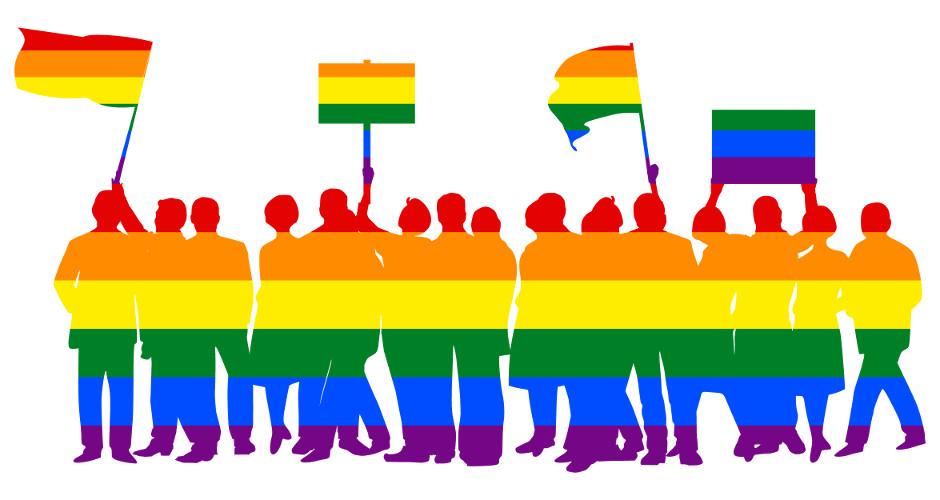Last week activist groups flooded the Idaho Capitol to argue for adding “sexual orientation” and “gender identity” to the Civil Rights section of Idaho law. The recurring campaign to “add the words” ebbs and flows. It resurfaces in varying degrees annually, though the legislature repeatedly and consistently rejects their proposal. These groups believe adding the words will end certain kinds of discrimination in employment, housing, and public accommodations.
The demands from Add the Words are ironic. While trying to prohibit some types of discrimination, their proposal requires other discrimination against people of faith who run businesses, provide housing, and pay the prices for public accommodations. In 2016, Idaho Senate leaders contemplated a compromise law but pulled back because it would violate the Constitutional protection of religious freedom (1st Amendment).
Cases of discrimination on the grounds of sexual orientation and gender identity in other states (i.e., the bakery case in Oregon about a wedding cake) demonstrate how an Add the Words law would compel business persons of faith to violate their moral conscience. No matter how accommodating and compassionate the baker may be, if he/she doesn’t bake a wedding cake for a gay couple, they would be subject to a business-killing lawsuit.
Religious freedom has historically been protected in the United States, but sexual orientation and gender identity have not been. In fact, the latter concepts are so new, the definitions of genders are still very fluid and inconsistent. It has only been a few decades since the extreme idea of “gender identity” was first articulated. Ask the activists what the terms actually mean, and you will receive a variety of answers, some very different from others.
The Add the Words proposal in Idaho is specifically problematic. Their definition of “gender identity” reads as follows:
“‘Gender Identity’ means a person’s actual or perceived gender identity, appearance, mannerisms, or other characteristics, with or without regard to the person’s sex at birth.”
Do you see the problems with such a definition? First, it doesn’t make sense to define a term by using the term itself–you can’t define “gender identity” as a person’s “actual or perceived gender identity.” Second, including “appearance” and “mannerisms” creates such a wide scope that virtually any circumstance where someone felt they weren’t treated fairly could be argued as discrimination. This is true because literally, everyone possesses their own unique appearance and mannerisms. All an aggrieved person needs to do is say their mistreatment was because of their unique appearance or mannerisms, and, “presto,” they are a victim of discrimination.
As convenient as it might be, definitions and hierarchies of rights are not simple. The history of Supreme Court decisions shows a progression of determining which rights out-rank others and in which situations. Religious freedom is one of our first and foremost fundamental rights.
As convenient as it might be, definitions and hierarchies of rights are not simple. The history of Supreme Court decisions shows a progression of determining which rights out-rank others and in which situations. Religious freedom is one of our first and foremost basic rights.
Religions, including but not limited to Christianity, Judaism, and Islam, contain creeds and doctrines promoting certain behaviors and ways of life while discouraging others. It is what religion does. Many people of faith believe the various claims of there being different sexual orientations and gender identities to be immoral and wrong. It is part of their moral conscience.
Whether religious or irreligious, the proponents of Add the Words believe discrimination based on sexual orientation and gender identity is necessarily morally wrong. Some activists may even have religious convictions to that end, but by supporting the Add the Words campaign, they place their newly created notions of sexual orientation and gender identity on a higher plane than religious freedom in general. Moreover, they demand the same of others.
The campaign for Add the Words claims years of oppression and discrimination. The right to freely exercise religion was only finally protected after centuries of conflict and warfare.
Religious liberty should not be taken for granted nor sacrificed. Perhaps it’s possible to find a policy where discrimination is rightly discouraged in law without the suppression of Constitutionally protected religious rights. So far, it hasn’t been discovered, anywhere.
Simply put, unfair discrimination against individuals or groups–intended to demean them or harm them–is not moral; people should not do it, and we should teach our children accordingly. However, when someone merely declines to act in a way that would be contrary to their religious convictions, it is not “discrimination” as such, and it is not immoral. Add the Words’ efforts to legislate away all discrimination by codifying one particular version of morality will create even greater offenses to our rights of conscience and collective morality.
The compassion of Add the Words activists and their persistence in the search for justice is admirable. However, adding the words in Idaho will not bring the equality they seek; instead, it will only create new confusions about discrimination while negating our precious religious liberty.
Dr. Ronald Nate’s Background:
Dr. Ronald Nate is a senior fellow with the Madison Liberty Institute. He earned his B.S. in economics from the University of Utah; M.A. and Ph.D. in economics from the University of Connecticut. Nate has been a Professor of Economics at Brigham Young University-Idaho since 2001. From 2014 to 2018, Dr. Nate served as an Idaho State Representative for Legislative District 34. Nate currently resides with his wife, Maria, and their four children in the Rexburg area.


